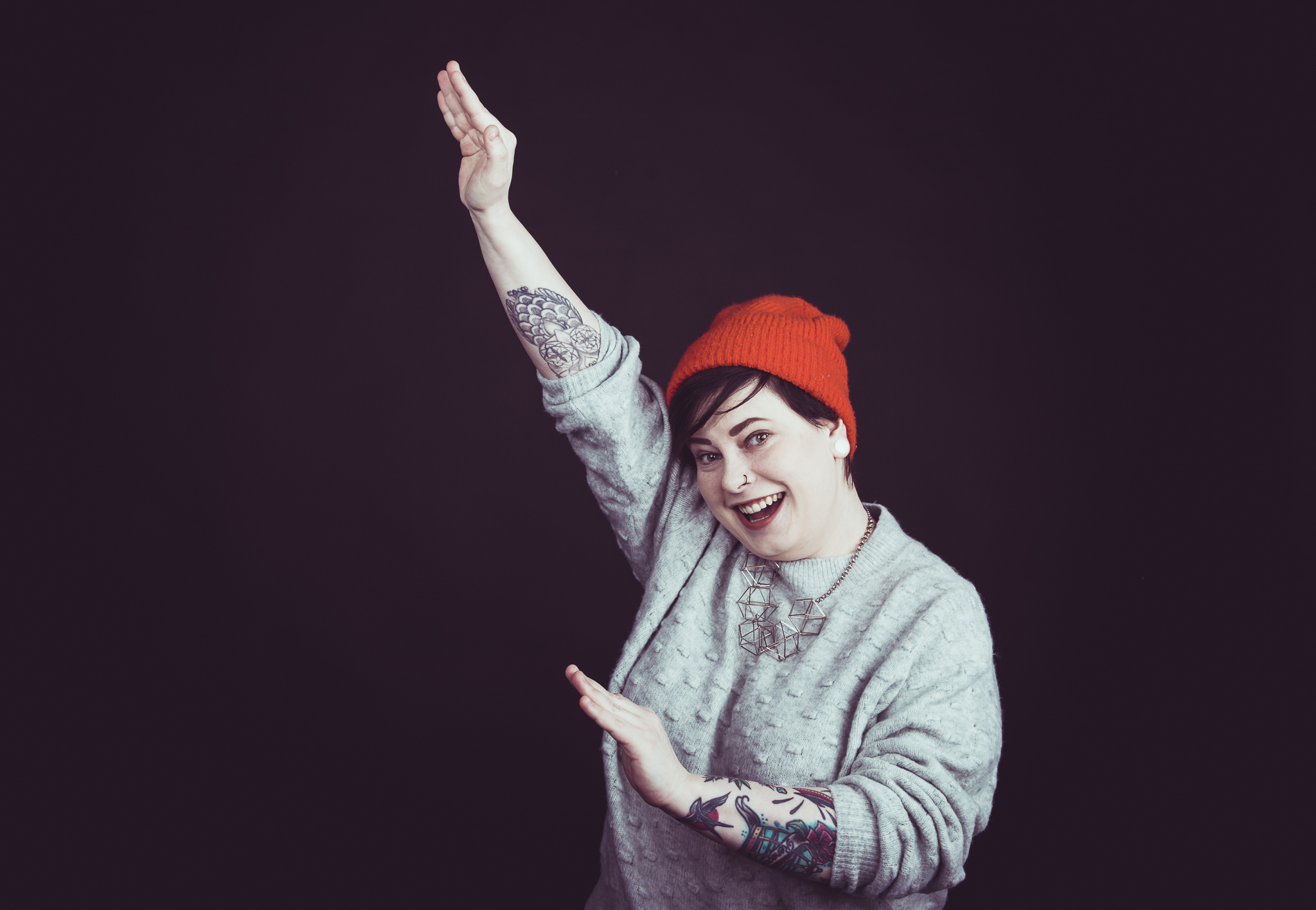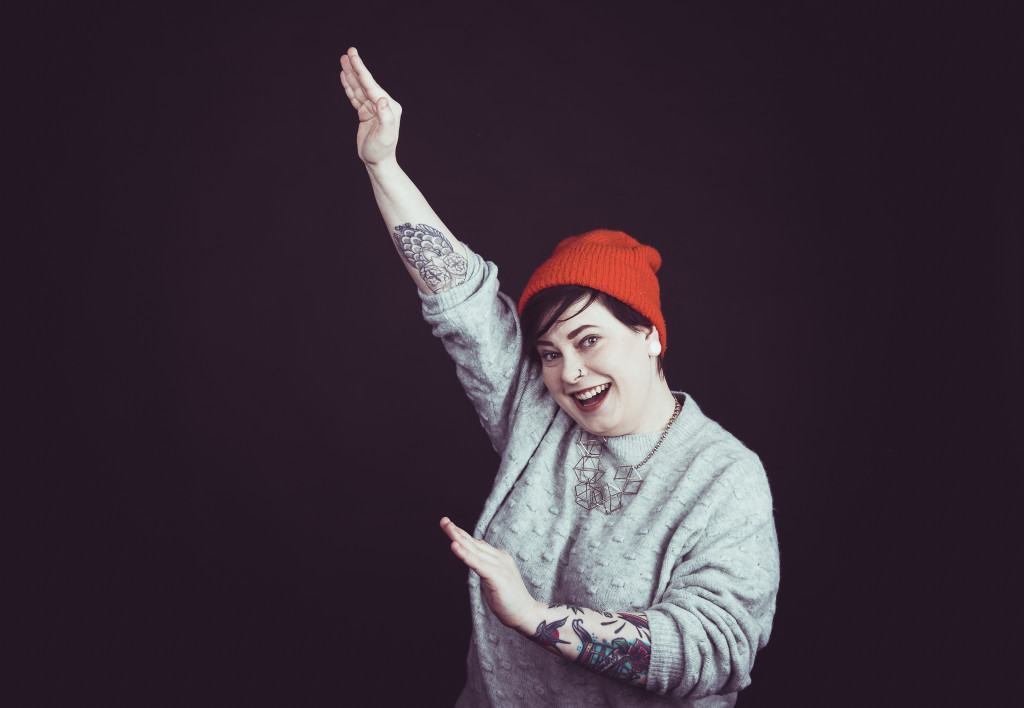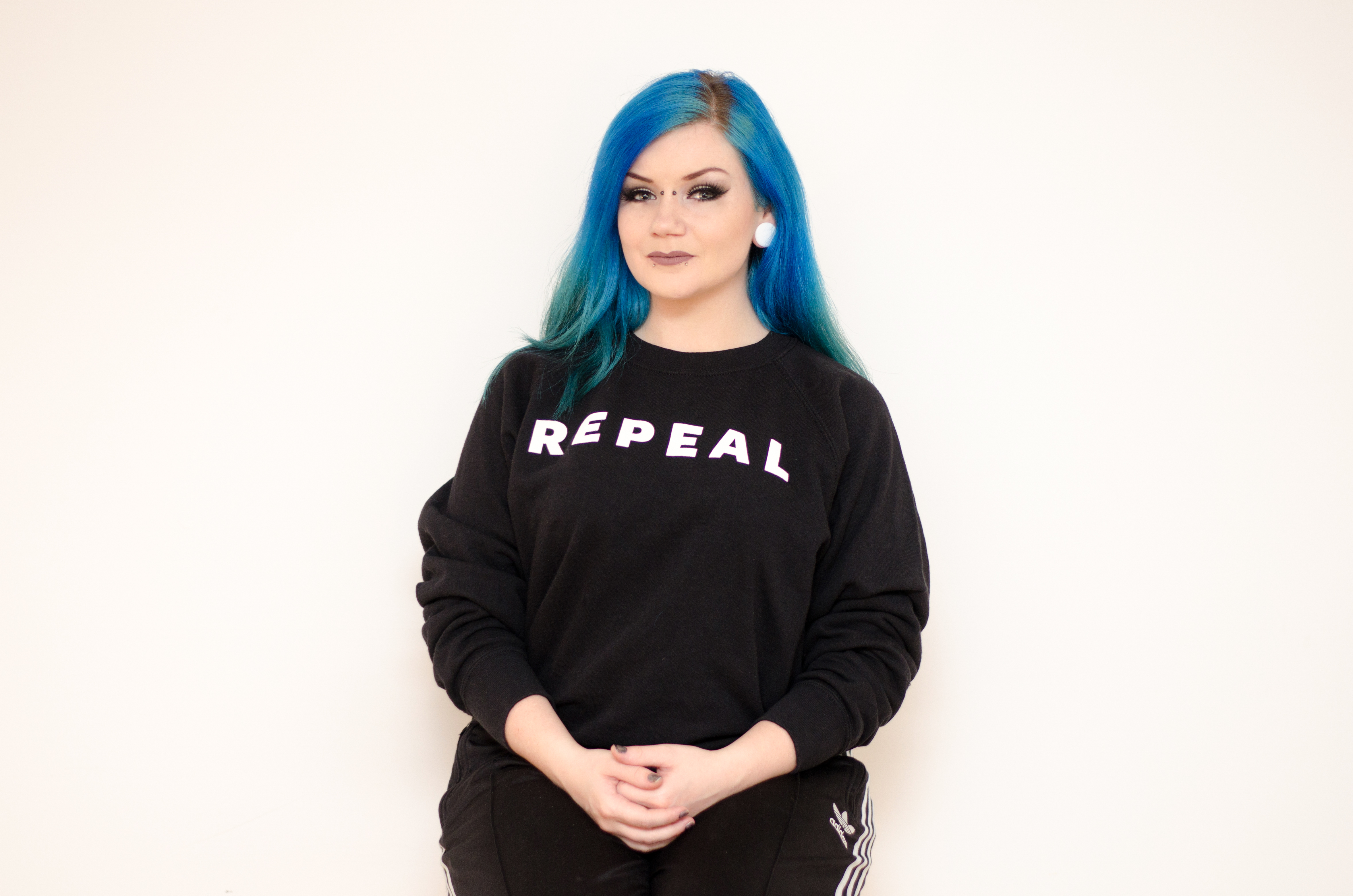People always say to me ‘it must be very difficult being a woman in comedy in this day and age’ why? because I have a fanny? The short answer is, for me, it doesn’t make a difference. Growing up in Coolock I used to hang out with a group of lads. We played football, kick the can, manhunt, the lot. I was always involved in sport and other activities with both sexes and if anyone told me otherwise, i’d stick it to them. I’ve always had this outlook throughout my life and never let someone tell me I couldn’t do something or belittled me based on my gender. Doing stand up comedy is something that saved me from a very dark period in my life. I know that’s a cheesy/cliche thing to say but, it did. I started doing comedy in May 2017 and quickly started getting paid gigs in venues which was a massive confidence boost and felt like I was on the right track. I was adamant to push my boundaries and see where this new venture would take me. One thing that people should ask but don’t is ‘ it must be very difficult being a working class woman in comedy in this day and age’ the answer to this is, yes, it can be. I have played in some popular venues around Dublin over the last year, big and small, but one night in particular stands out to me. At one of my shows, a comedian said to me after I got off stage ‘you sound like a Junkie’ to which I glared unamused, shocked and responded ‘well, if you actually took a day trip in your big boat and went across the the liffey, maybe you’d realise that it’s actually a northside accent/dialect’, This happens more than you think and sometimes it can be difficult to work along side people who have notions about where you are from. It might be difficult for people to understand, but gender, personally, has never been an issue for me in anything I have set my mind to, it has never held me back. If anything, men have helped me and supported me in most of my career aspects including illustration as well as comedy. Of course, that’s not to say it’s been the case for others. If anything, a lot of light has been shone on the comedy industry as of late and what a cesspit it can be for both men and women on the scene. In certain circumstances, it has been horrific and hard to believe what goes on.
As a working class comedian It can be tricky. I’m a story teller. You want to make people laugh with you and not at you. If people are laughing at you, I personally feel you have lost the audience. Something to remember that someone once told me is that at the end of the day, the audience owes you nothing. One thing I strive for in my sets is people understanding where i’m coming from and getting a look in at my life, I don’t necessary talk about ‘working class’ topics because to me, they’re just normal every day topics. It is interesting for an outsider in the audience looking in at a snippet of my life of an area they’ve never been, I like to challenge peoples perspectives and outlooks. Putting things that don’t usually work or make sense together works, for example, my tits getting stuck in a wooden chair (except that actually happened, but we wont get into it). Sometimes people assume the ‘shock’ factor is the way to go and confuse this with dark humour. I’ve seen young comedians at the start of their career making jokes about still births and punching their ma in her face and are shocked when nobody laughs and this can be really damaging. I also think it comes across lazy as you are purely relying on the shock factor for people to laugh and nothing else. One of the main things you learn working as a comedian is how to read your fucking audience, and if you can’t do that, you’re in the wrong game.
Coming from a background where you have to work twice as hard to achieve what someone automatically gets handed to them on a silver plate, isn’t a walk in the park. It takes determination and a certain level of professionalism. I find there are a handful of comedians out there who complain that they have not been asked to preform in certain venues based on the fact that they are a woman. In some cases, some clubs are very heavily male dominated and you’d be lucky to see any woman on a line up of 6 or more men, but I find people mention clubs that I have performed in, so I find it hard to believe that it would be one rule for one woman and a different rule for another. This irks me on many levels, sometimes, it is not about your gender, it is about your material and the presence you bring to the stage. I have worked and stuck my neck out to get to where I am, I don’t automatically think that things will come my way or assume someone will email me about a gig because that’s not how the world works, it’s not how you network or gain contacts and trust and make yourself familiar with people on the scene, you have to put yourself out there. You have to make and pave your own path and find other solutions to the problem, like asking for advice, trying out new material on smaller nights and recording yourself and noticing where you can tighten your set up. If you automatically say you don’t get gigs based on the fact you’re a woman but have never pushed yourself or went over material and developed as a comedian, maybe that’s what you need to look at first before you assume the worst, because it is certainly not always the case.
I had my very first gig at Cherry Comedy in Whelans last May, after I preformed there, PJ Gallagher contacted me and asked if I wanted to do a 5 minute set on his tour ‘Dickhead’ in Howth. PJ has done the similar for other comedians like Alison Spittle and Joanne McNally, he is one of the soundest people I have met through doing comedy. I also asked Alison Spittle, Ruth Hunter, and Duane Duggan for advice early on in my career as I had not been at it long and they were all very supportive. On the other scale of things, I will be performing at Electric Picnic this year on an all female line up organised by the great Emily Callaghan, she has put a lot of hard work in and she is another deadly person in the industry. I have met a lot of people and have been supported by both men and women throughout my career and have seen the good and the bad, but for me, personally I’ve had some of the most positive experiences I’ve ever had through doing comedy that I would never have got to experience in any other career or industry.
Photo by Tara Thomas






